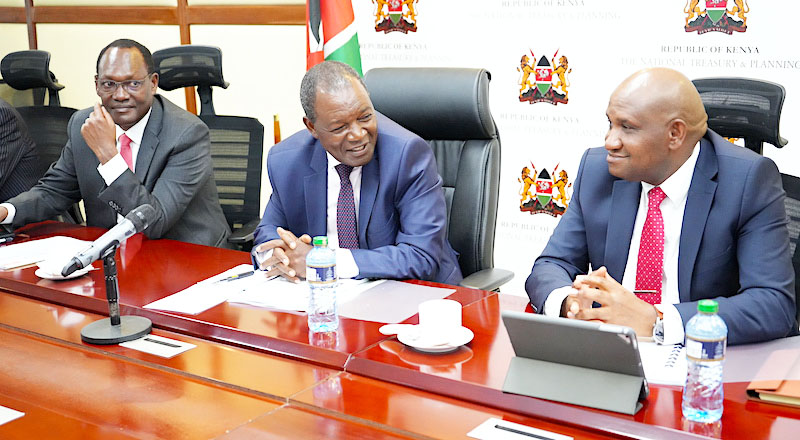The Cooperative movement is part of the major sectors the government expects to help it achieve its Medium Term Expenditure Framework (MTEF) objectives for the period 2023/24 – 2025/26.
MTEF normally sets out three-year spending plans of the government and its aim is to ensure that budgets reflect the government’s social and economic priorities and give substance to government’s reconstruction and development commitments.
The General Economics and Commercial Affairs (GECA), which also entails the Cooperative sub sector, is a significant player in the delivery of the government’s agenda in terms of Micro, Small and Medium Enterprises, manufacturing and agriculture.
Part of the key objectives of the GECA MTEF as per the Government’s 2023 Budget Policy Statement (BPS) is to enhance local and international markets access and affordable finance through co-operatives and Saccos.
Under co-operatives, the specific interventions for implementing the objectives will involve modernizing the New Kenya Co-operative Creameries (NKCC) and participation of co-operatives and Saccos in Financial Inclusion Fund (‘Hustler’ Fund) as intermediaries.
Others are implementing the coffee farm input subsidy through New Kenya Planters Co-Operative Union (NKPCU), enhancing the production capacity of powder milk through NKCC, disbursing affordable and accessible credit to farmers through Coffee Cherry Advance Revolving Fund (CCARF) under New KPCU and operationalizing the Co-operative Management Information System (CMIS).
Recently, President William Ruto made some key changes in the management of New KPCU by appointing Daniel Chemno, Former Uasin Gishu Deputy Governor, as chairperson of the Board of Directors for a three year period effective February10, 2023 after revoking the appointment of Henry Kinyua as chairperson.
The same changes were also made to New KCC where David Maina Kamiru, was appointed the new chairperson effective February 10, 2023; hence revoking the appointment of Anthony Njoroge Mutugi.
The government is also proposing to allocate Ksh 1.86 billion to the State Department for Co-operative Development in the 2023/2024 FY budget for co-operative development and management while the 2022/2023 budget estimates for the department is Ksh 2.26 billion, where Ksh 1.83 billion is current expenditure while Ksh 422.5 million is capital expenditure. This implies that there is a reduction of Ksh397.8 in the budget.
A huge chunk of the total amount allocated to the State Department of Co-operatives will go to current expenditure projected at Ksh 1.51 billion while the capital expenditure is being projected at Ksh 309 million in the Financial Year (FY).
This comes amidst plans by the government to launch the second phase of the ‘Hustler’ Fund in March this year and increasing the loan limit to Ksh2.5 million.
A total of 1,250 Saccos and 75,000 Chamas (investment groups) are being targeted to tap into the opportunities availed by the second phase of the Hustler Fund.
Under the regulations, a financial intermediary may apply for a loan from the Fund for on-lending to a business person or micro, small and medium enterprises.
It’s envisioned that Saccos regulated by the Sacco Societies Regulatory Authority (SASRA) will be able to access between Ksh10 to Ksh 100 million.
In a consultative meeting with Co-operatives leaders under the Co-operative Alliance of Kenya (CAK) last year, Co-operatives and MSME Development Cabinet Secretary Simon Chelugui noted that the Co-operative movement is at the core of President William Ruto’s administration who sees the movement as instrumental in scaling economic growth.
“The most important emergent economic policy intervention for the new administration is the ‘Hustler Fund,’ targeted towards financial empowerment at lower levels to accelerate growth by creating access to credit facilities.” Chelugui expounded.
By Roy Hezron



